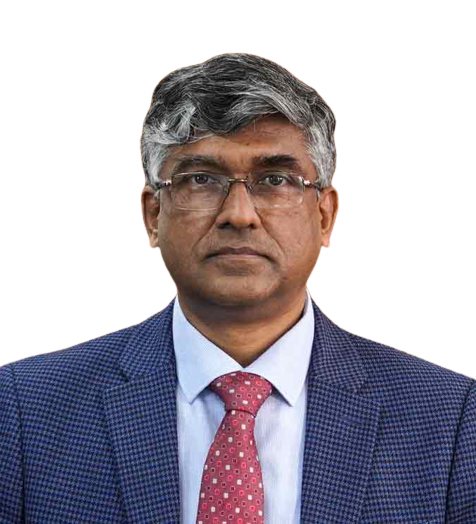
DHAKA, March 16, 2023 (BSS) - Senior Secretary of the Ministry of Commerce Tapan Kanti Ghosh today stressed the need for taking maximum benefits from the UK Developing Countries Trading Scheme (DCTS) with proper information on it.
"Our exporters are well informed about the EU GSP, but they have limited information about UK DCTS. They could take most out of it with proper information," he said.
Tapan said these while addressing a stakeholders consultation as the chief guest titled "Expanding and Diversifying Exports to the UK Market" organised by Research and Policy Integration for Development (RAPID) with support from the UK's Foreign, Commonwealth, and Development Office (FCDO).
Dr. Duncan Overfield, the Deputy Development Director at FCDO, spoke as the guest of honour. Md Faizul Islam, Chairman of the Bangladesh Trade and Tariff Commission, and A.H.M Ahsan, Vice Chairman and CEO of the Export Promotion Bureau, were present as special guests. The event started with the opening remarks from Dr. M Abu Eusuf (Professor, University of Dhaka and Executive Director, RAPID). The keynote presentation was delivered by Dr. Mohammad Abdur Razzaque (Chairman, RAPID).
While discussing tariff rationalisation, the Commerce Secretary said that Bangladesh relies on import tariff revenue which is important for meeting the government expenditures like education, health and social protection. "Thus, tariff rationalisation will create a challenge to ensure these expenditures."
Moreover, he said sometimes Bangladeshi entrepreneurs ask for protection from foreign products getting into the local market. "However, after 2026, Bangladesh needs to lower the tariff rate, and therefore, our exporters need to be mindful of the increasing competition,"
Regarding the shrinking market access, the commerce secretary highlighted, "We are negotiating with countries to secure favourable market access."
While discussing the payment challenge, he mentioned that "We were unaware of the open account payment issues and would work with Bangladesh Bank to solve the problem."
Dr Duncan Overfield, Deputy Development Director at FCDO, discussed the necessity of relevant policy reforms for Bangladesh that will best serve the country.
"Bangladesh must explore the necessary policy option and support to ensure the best utilisation of UK DCTS, mostly after the LDC graduation period."
Dr Duncan further believed that the perception of goods originating from Bangladesh will become more positive over time, much like how the perception of products from Hong Kong and China changed over the years.
A.H.M Ahsan, Vice Chairman and CEO of the Export Promotion Bureau (EPB), mentioned, "Export diversification is one of the priority areas we are working on. However, we need to go a long way."
Again, he discussed key improvement areas such as maintaining SPS, ensuring proper packaging, improving the country's perception and meeting consumer demand to tap the unutilised export potential to the UK market.
Md Faizul Islam, Chairman of the Bangladesh Trade and Tariff Commission, mentioned, "Both Public and private bodies need to work together to ensure export diversification,"
Regarding the tariff structure of Bangladesh, he further stated, "High import tariffs work as disincentives for consumers as well as producers. The government is working on tariff rationalisation."
Following the keynote presentation, a moderated panel discussion was conducted with representatives from leather and footwear, light engineering, agro-food and agro-processed products, and fish and shrimp industries.
The distinguished panellists were Md Nasrullah, Head of International Business at Apex Footwear Limited, Abdur Rouf, Vice-President of International Business Unit at Walton Group, Mohammad Mushtaque Ahmed Tanvir, President of Bangladesh Bi-cycle & Parts Manufacturers and Exporters Association (BBPMEA), and Md Ashraf Hossain Masud, President in-Charge and Senior Vice-President of the Bangladesh Frozen Foods Exporters Association (BFFEA).
The event concluded with closing remarks by Dr. M Abu Eusuf.
RAPID's high-quality research based on the quantitative analysis and highly disaggregated trade data and intense stakeholder consultations with the support of the UK's Foreign, Commonwealth and Development Office (FCDO) has culminated in eleven key recommendations:
The Policy recommendations are:
1. Disseminate market-specific information (duty-free benefits, rules of origin provisions, required standards etc.) to facilitate the expansion of non-RMG exports to the UK. The ministry of commerce and other relevant stakeholders can play a critical role in disseminating relevant information and building necessary awareness.
2. Promote high-quality non-RMG products from Bangladesh in UK exhibitions and events and assist exporters in participating in these events to increase export orders.
3. Integrate into UK supply chains and establish relationships with big brands and retailers as relationships with them are one of the most essential ingredients in increasing export sales in the UK.
4. Collaborate among Bangladesh authorities, trade organisations, and UK stakeholders such as private sector associations (with the support of the FCDO) to help establish the connection between exporters and importers. This can also help build awareness about various non-RMG export products of Bangladesh.
5. Improve productivity, upgrade technology, and ensure compliance with product quality since these are considered priority issues to enhance the market share of non-RMG products of Bangladesh in the UK.
6. Enhance the capacity of the existing standards authorities and institutions. Enhancement of capacity should be an urgent policy priority to provide globally recognised certifications and necessary testing facilities locally at lower costs.
7. Deepen incentives for the identified export sectors to achieve economies of scale and enhance export competitiveness in destination markets, including the UK.
8. Take measures to remove anti-export bias and to rationalise tariffs to ensure the profitability of export activities.
9. Prioritise power supply to export sectors, tackle infrastructural bottlenecks by reducing lead time, and improve port efficiency for enhancing the competitiveness of non-RMG exports.
10. Ensure access to low-cost finances for the export sectors and their backward linkage sectors since access to finance is essential to increase the scale of operation and expand exports.
11. Improve productive capacity for the non-RMG sector for export promotion and diversification. Bangladesh should seek additional UK technical and financial assistance and make the most of all available support to improve productive capacity and adopt cutting-edge technology to modern business practices.